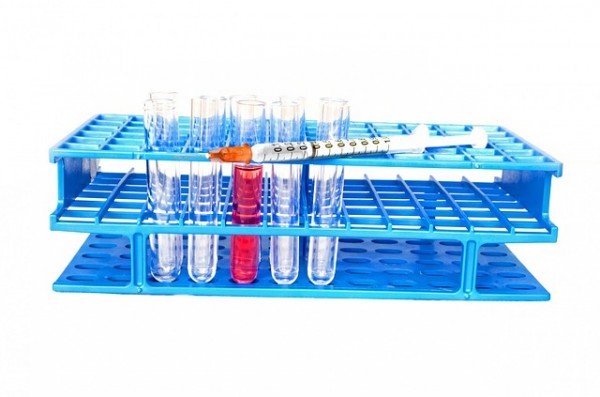Blood Test Predicts Breast Cancer Recurrence With Accuracy

A new blood test has been developed for breast cancer survivors that researcher claim can predict if cancer recurrence is going to happen with up to 95 percent accuracy, according to a recent study.
Past research has shown the medical community that a whopping one in five breast cancer survivors who have undergone traditional therapies to stave off the disease wind up experiencing a cancer recurrence within the following decade. Of course, these statistics chance when radical treatment options, such as a double mastectomy, are taken into account. Still, the uncomfortably high chances of recurrence are worrisome to all surviving victims of breast cancer.
As things stands, cancer survivors who believe they are experiencing the early symptoms of a recurrence an take a routine blood test and undergo scans to determine if cancer has indeed reappeared. However, according to researchers from the Johns Hopkins Kimmel Cancer Center in Baltimore, these tests are infamously inaccurate and often produce false positives, causing stress and unnecessary action to be taken by doctors and patients alike.
Now, according to a study recently published in Cancer Research, a new blood test has been developed that can detect the presence of resurged cancer cells with far more accuracy, giving breast cancer survivors a new weapon in their arsenal for fighting off the disease, not to mention piece-of-mind.
According to the study results, after scanning the DNA of blood from patients with metastatic breast cancer, a Johns Hopkins research team was able to identify ten genes that are altered in very specific ways when exposed to active breast cancers.
Using this knowledge, the team developed a test that determines whether hypermethylation -- a process that adversely influences gene expression that would otherwise keep cancers in check -- has occurred in any of the breast cancer genes.
Two blood samples each from 29 patients taken at different times following a chemotherapy regimen revealed that the test can predict if cancer resurgence is likely with 95 percent accuracy even just two weeks after the therapy.
According to the authors of the study, it is the hope that such tests can help patients and physician better determine the effectiveness of standard treatments, and prepare themselves accordingly if a resurgence is predicted.
The study was published in Cancer Research, an American Journal of Cancer publication. An accompanying Johns Hopkins press release was published on April 15.
Apr 15, 2014 02:14 PM EDT





